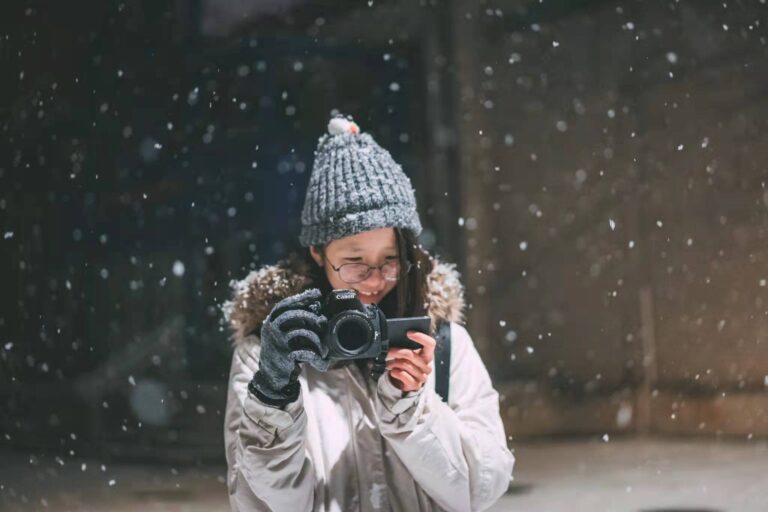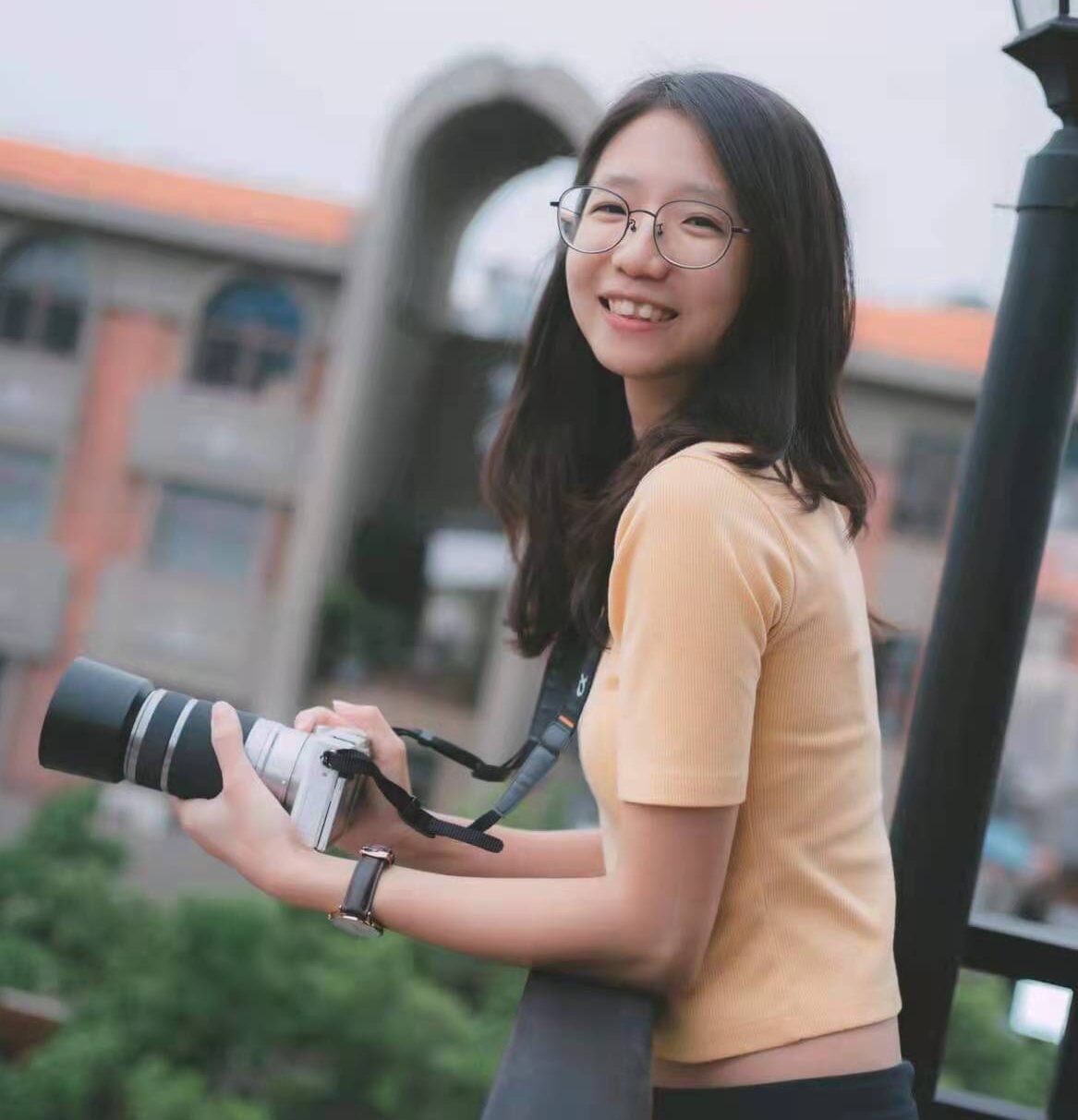
Four years and three more, from undergraduate to postgraduate, all along in Beijing.
Topic
2022.01.20
Journalist | Hoo Zi Ning, Song Yee Ting
Photo | Pan Yi Sin
Layout by | Sherlyn Chin Meijiun
In recent years, more and more Malaysian students are studying abroad in China. Among them, many who did their undergraduate studies in China choose to stay and pursue a master’s degree in China as well. Pan Yi Sin, class of ‘15 undergraduate of the PKU Department of Chinese Language and Literature, after receiving double bachelor’s degrees in Chinese Language and Literature and Economics, decided to continue studying in PKU for a master’s degree in Folk Literature. For what reason did she choose to stay in Beijing? What differences are there between undergraduate and postgraduate studies? Through dialogue with Yi Sin, we uncovered these questions one by one.
Q: Before applying for a master’s degree and starting your postgraduate life, were there any either material, mental, or ability-wise preparations you made beforehand?

A: I decided to apply for graduate school probably in the fall semester of junior year. At the time, I had to juggle a double degree course in economics, and the schoolwork was pretty heavy. I asked my thesis instructor and seniors for information on postgraduate examinations and the required readings, to better prepare for the exams. I personally think that before applying for postgraduate studies, candidates need to thoroughly understand the required readings and their relevant content in order to prepare for the writtens exams and interviews. As for the mental aspect, I did not worry too much during my application. SInce the major I applied for has always had mostly Chinese students and only one or two international students, I did not have many seniors to inquire about their application experience. I could only slowly adjust myself after starting graduate school.
Q: After 4 years of undergraduate studies, what made you want to continue studying?

A: Before graduating from my bachelor’s degree, I’d also thought about and planned my future paths. My idea at the time was to choose between working or pursuing a master’s degree. After careful consideration, I thought that continuing my studies was a more suitable choice for my situation back then. To be honest, I’d struggled with whether or not I should continue to study after graduation ever since my sophomore year. Back then, I was extremely immersed in the process of contemplating academic topics and materialising my thoughts into one essay after another. But at the same time, I was also constantly doubting my academic abilities, even to the point where I indulged the possibility of me not passing the postgraduate exam (although this later proved to be me overthinking). This led me to explore a back-up plan — trying to find a job. However, in the job-hunting arena, compared to students who have clear-cut plans and several internship experiences, I was essentially a newbie with zero experience, so naturally applying for internships and jobs wasn’t a smooth process for me. Through it I realised that if I wanted to get hired, I would have to put in a lot more effort than other people beforehand. After that, I chose to follow my interests and apply for graduate school. While studying, I hope to enrich my internship experiences, I guess it also counts as preparation for the future me who will eventually enter the workplace.
Q: Do you think choosing a graduate school in Beijing was a good choice?

A: Considering that most international students still cannot enter China due to the pandemic, I personally feel that it isn’t a great choice. Assuming you could enter the country, then that would be a different matter, but still it mainly comes down to your area of research. As we all know, the overall environment in China is a little more sensitive than other countries, and in my opinion this has indirectly led to a relatively less open academic environment, and the discussion of certain topics might be limited. However, it is also undeniable that the academic resources and opportunities of universities in Beijing can be said to be at a world-class level. Whether to choose to study in Beijing, or China in general, each individual has to consider various factors before deciding.
Q: Could you share with us if you applied to any other universities besides Peking University? And why did you ultimately decide on studying in Beijing (or PKU)?

A: Since I studied Chinese Language and Literature in my undergraduate course, my choices were not particularly extensive. I had especially wanted to apply to the University of Heidelberg or the University of Göttingen in Germany for my postgraduate studies, mainly because my thesis was based on Grimms’ Fairy Tales, and I personally am interested in fairy tale research and cross-cultural research. It is worth noting that the Brothers Grimm, authors of Grimms’ Fairy Tales, are also well-known German folk literature researchers. Therefore, considering that I wanted to deepen my studies in fairy tale research, studying in Germany was a goal worth pursuing. But when I was applying for graduate schools, I missed the deadline due to busy schoolwork. In the end, I only applied for a master’s degree from PKU, and fortunately I was accepted.
Q: Have you ever second-guessed your choice to stay in Beijing for graduate school?

A: Learning through a screen can never be compared with the face-to-face learning experience with your instructor, so sometimes I can’t help but wonder if it was the right choice to stay in Beijing. There were also a few moments where I felt my graduate studies amounted to nothing but emptiness and loneliness. During my undergraduate studies, which is when I was in Beijing, I deemed myself to be a more disciplined person. However, studying at home has made me lose motivation. I tried multiple methods to adjust my mentality, like setting goals. I personally think that goals should not be too grand, rather you should start small, from determining daily tasks that have to be completed before going to bed, and push yourself as much as possible from there.
Q: Studying abroad in Beijing for a bachelor’s and master’s degree — do you think there’s any difference between the two?

A: From my personal experience, in the undergraduate stage you basically have to listen attentively in class, revise, and take your exams. At the postgraduate stage, however, learning is much more independent and autonomous. In many cases, the teachers would let us decide on our own research direction, topic, etc., which is very different from when you’re writing your undergraduate thesis. In my first year of grad school, I was still in China. During discussion classes then, I often felt that the amount of books I’d read were nowhere near enough, or at least it was far inferior compared to other Chinese students, so the pressure in grad school was also greater than when I was studying for my bachelor’s degree.
Q: Can you share with us about the difficulties you faced when studying for your master’s degree in Beijing?

A: Actually, my research topics tend to gravitate towards the Western side, so the papers and books provided by PKU, even the research of my instructors, sometimes fail to provide the resources I need. Therefore, I do sometimes feel a bit resigned when choosing my research topics.
Q: Pursuing a master’s degree, or say, pursuing both a bachelor’s and master’s degree in Beijing — do you think this identity will be helpful in employment or furthering your studies in the future?

A: To be honest, I chose to continue studying mainly out of interest. I haven’t thought about how the identity of a ‘PKU grad student’ would benefit my personal development in the future. If I choose to continue studying after my master’s degree, then the identity of a PKU-grad would be a warning alarm, constantly reminding me of my goals, to be firm in my convictions, and generally be a person worthy of the title ‘PKU-er’.
Q: During your undergraduate and postgraduate studies, were there any major changes in your life aside from academics?

A: During my undergraduate studies, I went to different countries to participate in volunteer programs, such as teaching work. So, I plan to participate in some projects that will enable me to interact with some decision-makers in grad school. In my first year of grad school, I joined the Harvard Project for Asian and International Relations, which gave me the opportunity to have discussions with university professors, well-known individuals, and project implementers, about topics related to human rights and international relations. Sadly due to the pandemic, I now have missed out on many learning opportunities.
Q: When applying for grad school, did your family give you any advice or encouragement?

A: My family was very respectful of my decision. At the time, they did provide some opinions on my choice of major. They were mainly concerned about whether I can find a job after graduating. After all, folk literature is a relatively less mainstream subject, but in the end they still respected my interests.
Q: We know that you also did a double degree in economics during your undergraduate studies. Did you consider changing to a major other than Chinese language and literature, such as economics or management, when you applied for graduate school?

A: Well in fact, my main interest still lies in Chinese language and literature. I think I should choose a major that I am genuinely interested in to conduct research. When I was applying, I considered the PKU HSBC Business School, but in the end I still insisted on applying for the folk literature major of the Department of Chinese Language and Literature. To me, a double degree in economics was to keep a beacon of hope. I hope that in my future job-hunting stage, a double degree in economics can bring me more opportunities.
Q: Some suggestions for your juniors that want to pursue their postgraduate studies in Beijing.

A: I personally think that they should thoroughly consider the academic environment of their country of choice, from a broad understanding of the overall national background, to specifically researching the school’s academic resources, research direction of their instructors. Double, triple-checking each component to make sure everything fits your research field.

Editorial Board of The Voice of Beijing, 2021
Edited and published by | AMSIB
Advisor | Phuah Chi Ching, Choong Chi Jiong, Lim Yu
Coordinator | Sherlyn Chin Meijiun
Chief Editor | Ng Sie Unn, Koo Jing Tang
Journalist | Jaslyn Tan Boon Bin, Aden Tan Shen Yeh, Ho Ching Ling, Hoo Zi Ning, Ng Zi Wei, Kua Yee Shuen, Lee Jia Rong, Lim Qin Xuan, Song Yee Ting, Gan Jing Wen
Photographer | Sharyl Chow Khye Shien, Chew Chen Yee
Film Editor | Neoh Ke Wei, Ong Xiang Ying, Song Yee Ting
Art Editor | Ong Xiang Ying, Tiu Ann Kei
Translator | Chan Zi Qing, Tiu Ann Kei
Host | Aden Tan Shen Yeh, Kua Yee Shuen



